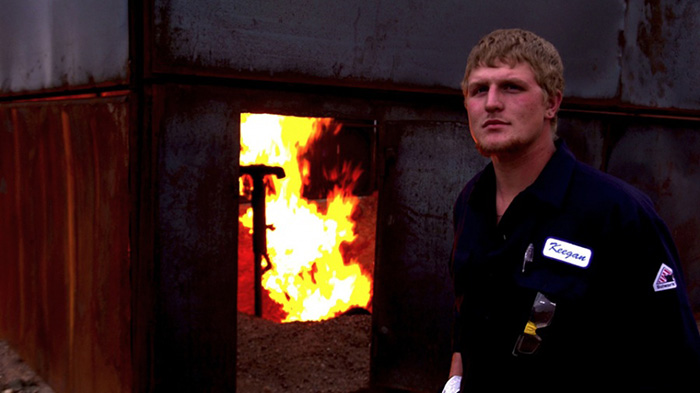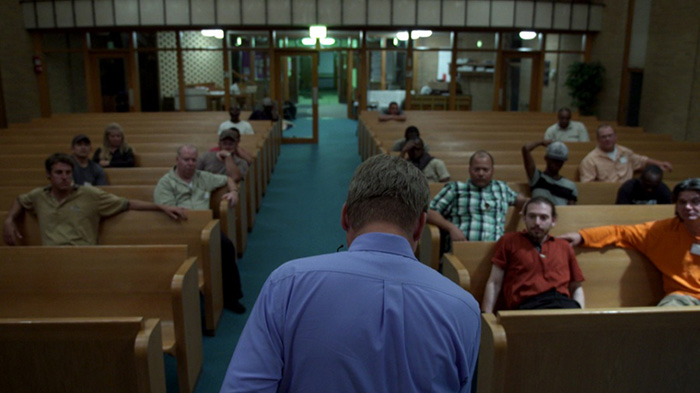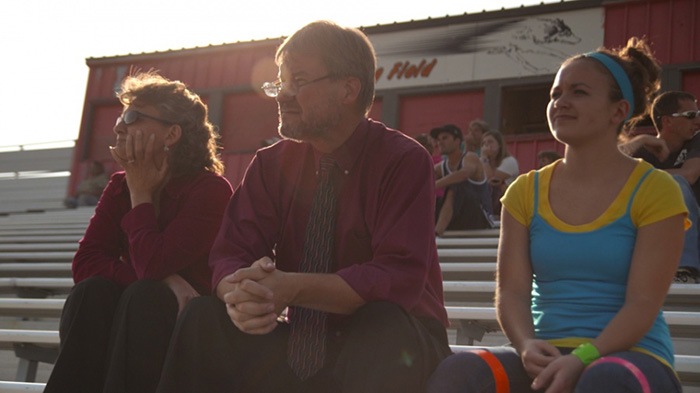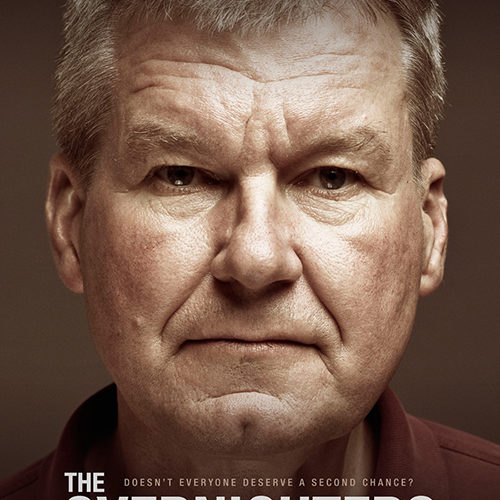The easiest thing I could say about The Overnighters is that director Jesse Moss got lucky. He looked to tell the story about a pastor doing God’s will against his congregation’s trepidation to house over a thousand strangers arrived in Williston, ND seeking employment within the area’s oil boom. Through interviews kept carefully hidden from those his subjects speak against, Moss found much more than a feel good piece depicting charity. He played the fly on the wall and discovered Pastor Jay Reinke‘s words “everybody is broken” were truer than any passage The Bible could hope to read as undeniable scripture. Secrets revealed themselves to the town, the people, and our central “hero” to prove beyond doubt that mankind’s seeming lack of compassion at present has less to do with those around us as it does with ourselves.

In this respect the stars of the film become fear and ego. We know both well, letting one or the other or both control us until our paths divert towards something different from which we set out to traverse. This small, sleepy town in the northern plains becomes a mirror for America projecting the entitlement, superiority, and self-righteousness we’ve come to believe we have the right to possess. To this end Reinke is a saint—at least on the surface. Because while he looks past the sins of hardworking migrators to give them a piece of church floor or a spot to legally park their car, it’s not hard to catch the vanity this good will bolsters. He wrestles with it and admits his decisions might ultimately be self-motivated, but we’re not prepared for the anger stewing within.
And this is why I can’t solely attribute The Overnighters‘ power as luck. Anyone could have started filming and stuck to Reinke as the hero in a way that allowed his personal desires steer the story into bias. I honestly believed Moss was on just such a track too after listening to a dissenter named Paul Engel: a man who doesn’t believe in himself or the hopeful dream that those around him have more love than hate. I watched him with a grin, seeing through the artifice at a person willing to speak his mind to the camera and inevitably provide the difficult adversary perfectly positioned for Reinke to convert. He was to be the film’s showcase—a sentimental victory to change hearts and minds into voting down a law might to stop the Concordia Lutheran Church’s program cold.

Boy was I wrong. This film isn’t about Reinke, the program, or the men desperately clinging onto a life they know probably ended the moment they stepped onto the bus to North Dakota. It’s about humanity: our paranoia, fear, and stubbornness to evolve into a species where peace could ever be a viable reality. Living together in disharmony are the toothlessly unemployed calling the kettle black; the rightfully labeled criminals crippled by a nation’s knee-jerk refusal to learn the details and nuance of a permanent branding easily taken at face value; those ready to find God’s path and be better; and those working the system until it no longer serves them. And as quick as we are to judge and assume the bad guys’ identities, we follow suit with the good forgetting we’re all caught somewhere in between.
It’s about the bureaucracy we hide behind in order to pass the blame when our consciences can no longer carry the burden. It’s about the charitable shedding their fleece to bare the hidden teeth that are now necessary to throw one “project” away for another with more potential points on the karma scale to earn if redemption is achieved. But most of all it is about our fallibility—that knack we have of repressing our true selves for an image we believe is more correct. This means those who wear a mask that either protects them via withholding facts or making some up as well as the hypocrites fighting to protect or destroy something that’s working towards the same goals they believe they’re squashing. Reasons, no matter how noble they appear, are simply excuses wrapped in a bow.

No one on display—I’m surprised Moss received permission to screen this footage without at least one blurred face—is better or worse than the next. Each has his or her demons and each must weigh difficult options via a personal utilitarian vote. It’s heartbreaking to watch Keegan Edwards and Michael Batten‘s stories: two men who faced adversity by standing tall and proud until fate intervenes. It’s therefore a revelatory moment when Reinke is caught inside one of his monologues admitting how some of those he’s helped may be worse off in the end because of his assistance. Think about it. What’s the more tragic fall? Failing because it simply wasn’t in the cards or being devastated once the hope you’ve earned through blood, sweat, and tears is ripped away by the same person who gave it?
The cyclical nature of Moss’ film is neither intentional or accident. It’s merely life. Good intentions or not, we stumble and fall and face the challenge of whether to get back up. Ask any of these wholly authentic subjects about injustice, personal growth, or demons and they’ll feed you some variation on what you’ve encountered through your own privilege or lack thereof. Ask Alan Mezo—The Overnighters‘ soul—about the definition of “fair” and see what he says. Because while Reinke, his family, community, and charity cases do save lives, they wreck them too. Sometimes it’s their own; sometimes another’s. Sometimes it’s second-hand due to the fear their presence conjures creating collateral damage. We all have secrets, pasts, and mistakes we’d like to forget. We also all have generosity and hate. How we wield our guilt is what makes us unique.
The Overnighters opens in limited release Friday, October 10th.

